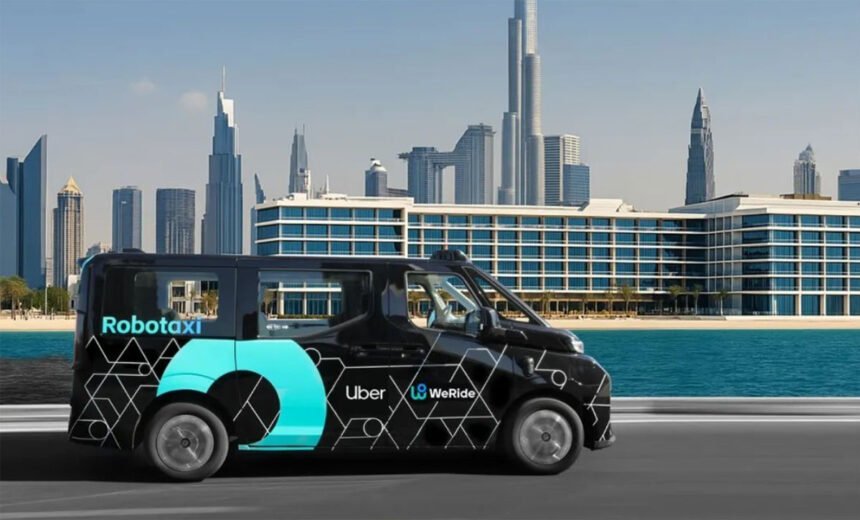Chinese autonomous driving technology company WeRide (NASDAQ: WRD) and US ride-hailing giant Uber Technologies (NYSE: UBER) have announced an expansion of their partnership to offer robotaxi services in additional cities across international markets. The two companies have committed to adding 15 new cities to their network over the next five years, including locations in Europe and the Middle East.
WeRide and Uber initially launched their self-driving robotaxi service in Abu Dhabi, with plans to expand to Dubai in the near future. Moving forward, the partnership will extend to several new cities each year outside of the US and China, with WeRide’s robotaxi service being accessible through the Uber app while Uber manages fleet operations.
This strategic expansion aligns with WeRide’s global growth strategy, aiming to make self-driving solutions more affordable and widely available to users worldwide. Han Xu, founder and CEO of WeRide, emphasized the importance of increasing accessibility to autonomous driving technology on a global scale.
Founded in 2017, WeRide has been a pioneer in smart driving solutions in China and went public on Nasdaq in October 2024. The company entered into a partnership with Uber in September 2024 to enhance the integration of its self-driving vehicles on the Uber platform. By December 2024, WeRide and Uber had launched robotaxi services in Abu Dhabi, with plans to expand the fleet to 50 units by mid-2025.
WeRide’s global presence includes development, testing, and operation of autonomous vehicles in 30 cities across 10 countries. The company holds autonomous driving test licenses in five countries simultaneously, including China, the UAE, Singapore, France, and the US.
In a continuous effort to expand their reach, WeRide and Uber recently extended their partnership to Dubai. The collaboration between these two industry leaders signifies a significant step forward in the adoption of autonomous driving technology on a global scale.
As WeRide and Uber pave the way for the future of transportation, their commitment to innovation and accessibility underscores the transformative potential of self-driving technology in redefining the future of mobility.







